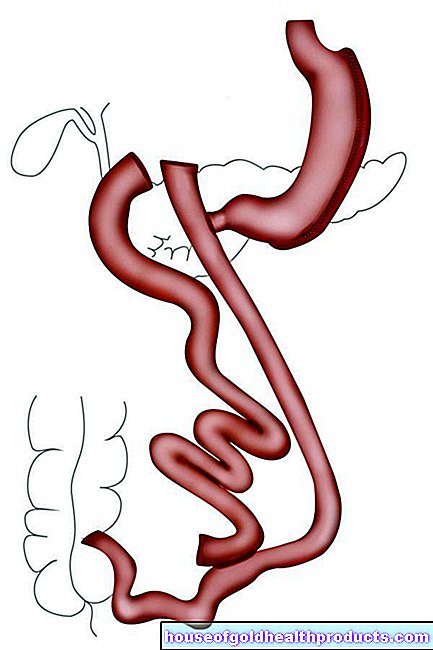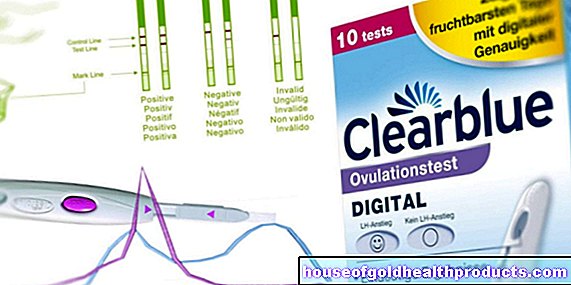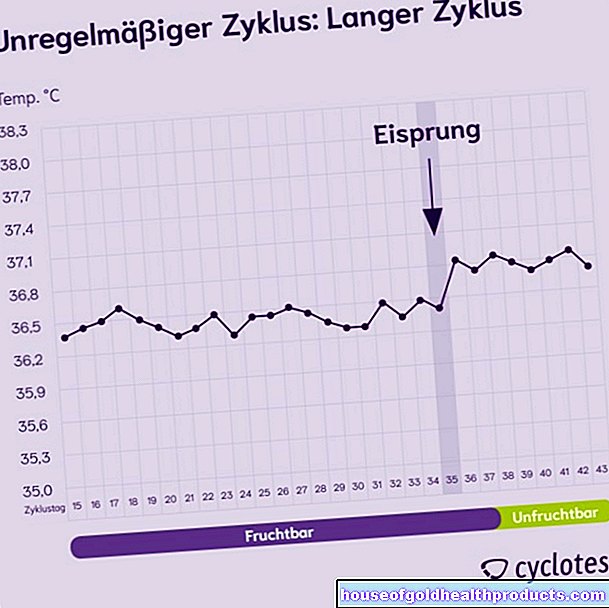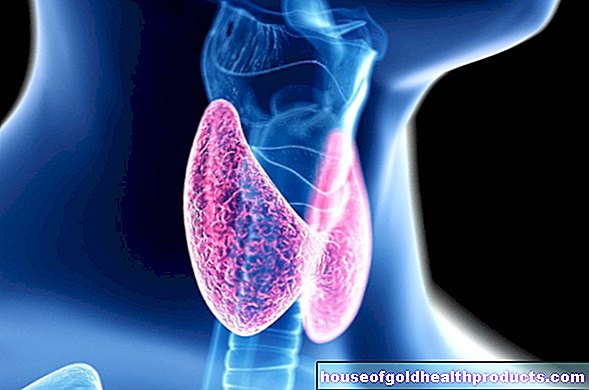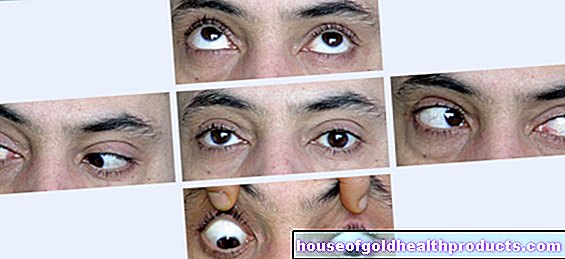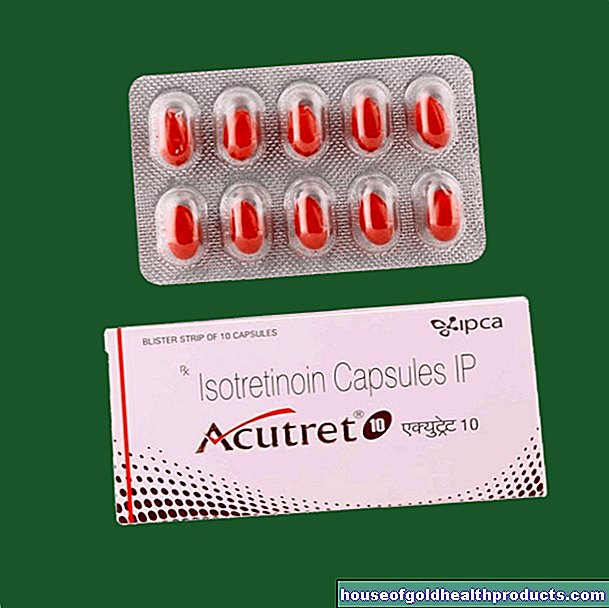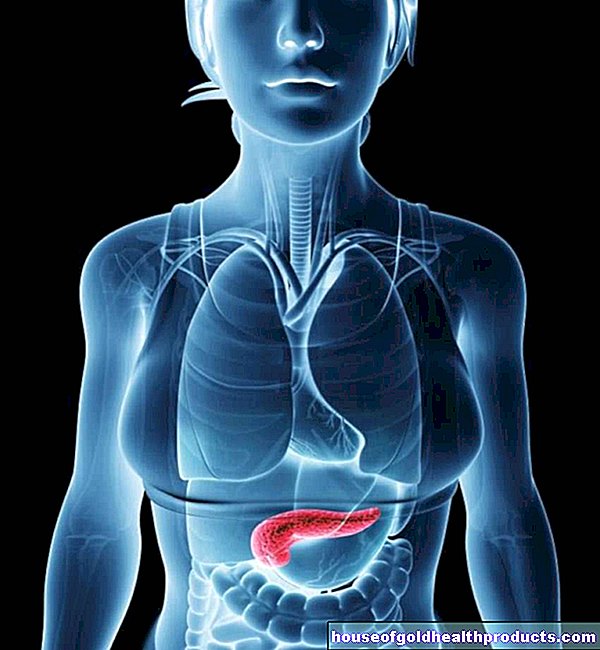Cyclosporine
All content is checked by medical journalists.Ciclosporin is a so-called immunosuppressant: it suppresses the reactions of the immune system. This is advantageous in diseases in which the immune system attacks the own body (autoimmune diseases), as well as in organ transplants to prevent rejection of the donor organ. Read more about the use, effects and side effects of ciclosporin here.
This is how cyclosporine works
Ciclosporin is a highly effective immunospresiv from the group of calcineurin inhibitors. It inhibits the release of the growth factor interleukin-2. This factor activates T helper cells and natural killer cells in the body, which can attack and destroy living tissue.
The immunosuppressant can prevent this by binding to a protein (ciclophilin) within the T cells. The resulting ciclosporin-ciclophilin complex inhibits the activity of the enzyme calcineurin, which is necessary for interleukin-2 synthesis. Ciclosporin inhibits the body's defense reactions.
Ciclosporin uptake, breakdown and excretion
The immunosuppressant can be taken as a capsule by mouth (orally) or injected as a syringe. It is metabolized in the liver and excreted in the bile and stool. After 14 to 20 hours, half of the active ingredient has left the body (half-life).
When is cyclosporine used?
Ciclosporin is used for:
- Organ and bone marrow transplants
- Severe psoriasis that does not respond to other therapies (therapy resistance)
Sometimes the immunosuppressant is also prescribed for severe rheumatoid arthritis and therapy-resistant atopic dermatitis (neurodermatitis).
This is how ciclosporin is used
Ciclosporin is available in different dosage forms, for example as a capsule for oral use or as a syringe for injection. The attending physician determines the dosage depending on the clinical picture. The patient's body weight also plays an important role. The dosage when taking is usually three to six milligrams of cyclosporine per kilogram of body weight and day, divided into two individual doses. The duration of use is also determined by the doctor.
What are the side effects of cyclosporine?
The very common cyclosporine side effects include worsening kidney function, high blood pressure, tremors (tremor), tiredness, paresthesia, gum ulcers, gastrointestinal complaints (such as loss of appetite, nausea, vomiting, diarrhea, gastric mucosal inflammation), excessive hair ( Hypertrichosis) and an increase in blood lipid levels.
Common side effects include cramps, stomach ulcers, weight gain, rise in blood sugar levels, acne, rash, allergic reactions, anemia, swelling of the face, menstrual disorders and gout.
Itching, muscle pain, hot flashes, sleep disorders, visual and hearing disorders, states of confusion, movement disorders, inflammation of the pancreas (pancreatitis) and benign enlargement of the male mammary glands (gynecomastia) are less common.
If you suffer from serious side effects or symptoms that are not mentioned, please consult your doctor.
What should be considered when taking ciclosporin?
Ciclosporin must not be used in the following cases:
- Hypersensitivity to the active ingredient or other components of the drug
- uncontrolled high blood pressure
- malignant tumor (cancer)
If the uric acid level in the blood is increased (hyperuricaemia), the immunosuppressant should only be used with caution.
Ciclosporin can interact with various other drugs, which can influence its own effectiveness and / or that of the other substances and increase possible side effects. This applies, for example, to macrolides (antibiotics), the antispasmodics carbamazepine and phenytoin, oral contraceptives, preparations containing St. John's wort, diclofenac (pain relievers) and CSE inhibitors (“statins”, cholesterol-lowering drugs). Therefore, inform your doctor about all preparations (including herbal ones) that you use.
You should not drink grapefruit juice while taking ciclosporin, as this may increase the side effects of the drug.
pregnancy and breast feeding period
During pregnancy, mothers should only take cyclosporine if the benefit justifies treatment. Too little is known about the drug's effects on mother and child. However, it appears that ciclosporin can cause premature birth in expectant mothers.
Ciclosporin should not be used during breastfeeding or a mother should wean before starting treatment.
How to get ciclosporin medication
Medicines with ciclosporin require a prescription, i.e. only available with a prescription in the pharmacy.
Tags: parasites drugs skin



